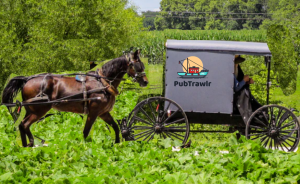
Three Sources of Community Psychology Updates that didn’t work (and one that did)
The really important community work happens in the community, not the laboratory. To get a more robust picture of the state of community-based research and action, we’ve started looking more broadly at nontraditional sources for updates.
And we’ve not been finding much! Twitter, Reddit, and news archives were all kind of a bust!
This is a big contrast from other areas that we’ve been studying like health equity, suicidology, and more content-specific domains like endometriosis. There are huge amounts of social media content, facebook group, news articles, and specific message boards where interested people can hang out.
Some of that comes from (I think) the fact that community psychology is more process and values-oriented than domain-oriented. This makes it a bit harder to form communities because people may be working on very different problem sets, though grounded in the same approach.
To get specific, there’s not really a community psychology discussion forum apart from the SCRA listserv. I’ve been scouting out a Discord server focused on psychological discussion that seems pretty cool, but it’s pretty broad. Other fields like Industrial/Organizational have these types of forums on Reddit.
On social media, community psychology accounts and hashtags don’t really get that much traction. Two to three “favorites” is about the norm.
And do you even start searching the “news?” I did a quick search and analysis for “community research” and while I got some interesting clusters back, it’s hard to say that it’s in the community psychology bailiwick.
Here’s the call to action. The field doesn’t have a clean way to gather more organic and practice-based evidence about what’s going on in the field. If you have better ideas, let us know in the comments.
Academia
But we’ll always have our precious journals. This month, there were 85 articles published in five core community psychology journals. In the below figures, I used some basic Bag-of-Words approaches to show the main terms and phrases that appear in the abstracts.
Topics
To really drive the into points home, the biggest cluster of articles as on CBPR, with some content-specific topics underneath (including our favorite topic, COVID-19!) Even looking at these, we get a high-level sense of the diversity in the field. Articles on schools, masculinity, violence: it makes it a little tough to develop an external search strategy to bring this material in.

In case you’re interested, I also put in the correlations plot to see how this topics were related

Last, but potentially least, here’s an excel file with the articles that are most representative of each topic. So, if you want to stay on top of the field, but only have two-ish hours, this is where to focus your time.
Having fun at APHA!
We’ll be in person at the American Public Health Association’s Conference October 24-26. Stop by our booth to talk about synthesis, moving ideas into action, and how better to make science more accessible!

AND COMING SOON
101 Days of Science, our easy, expert curated report, to help you stay on top of the fields. We’ll finally* be launching in November, so get ready!






